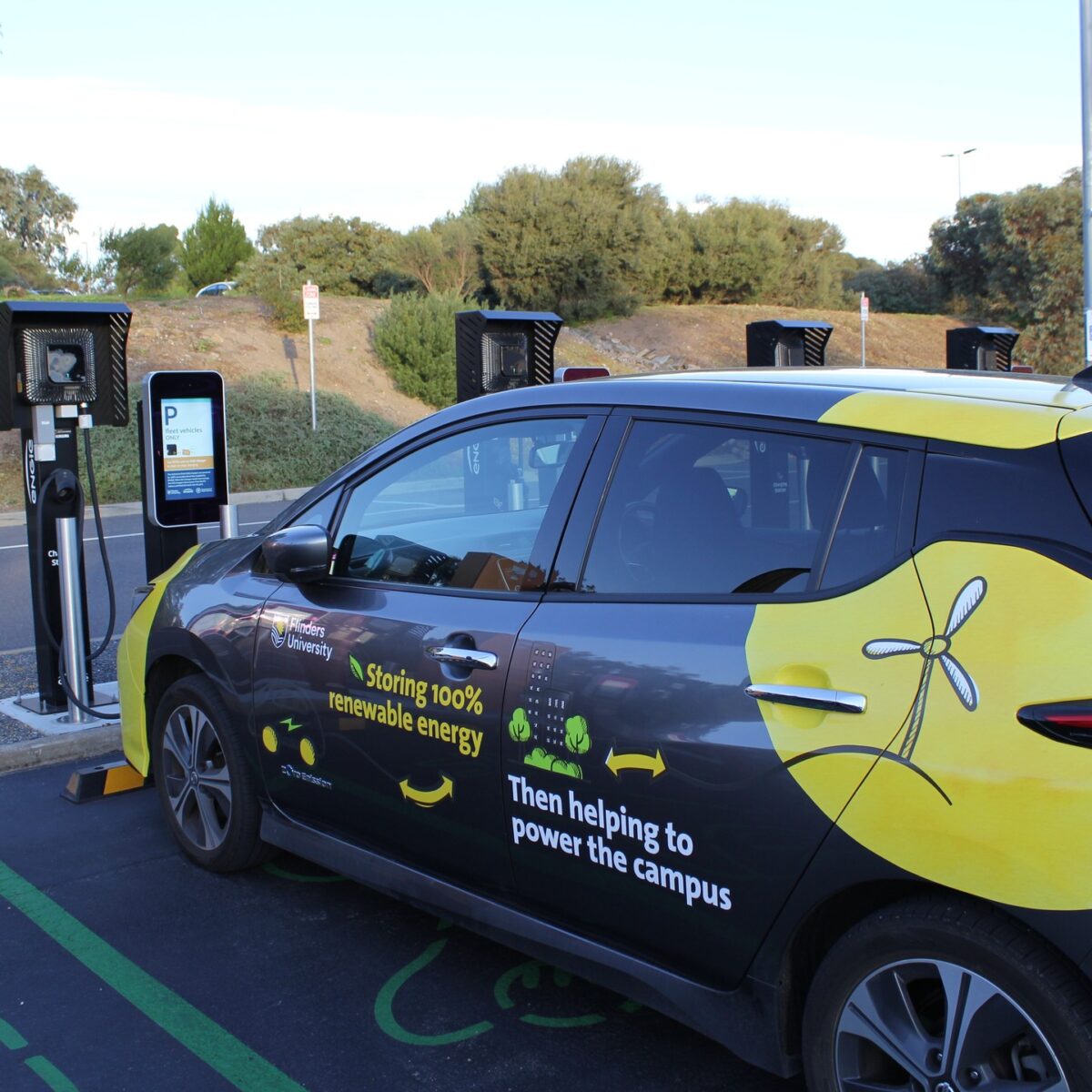In collaboration with the Australian arm of French renewables developer Engie, Flinders University has brought 10 vehicle-to-grid (V2G) chargers online, allowing electric vehicles (EVs) to become mobile batteries that can store and supply energy directly to the grid during periods of high demand.
The V2G charging bays at the university’s Bedford campus in southern Adelaide will be used to charge EVs and also feed renewable energy from compatible vehicles back into the campus electricity grid as part of the new virtual power plant (VPP) established by Engie for the trial.
The university said the project, first announced last year, demonstrates the potential of EVs to be harnessed as ‘batteries on wheels’ to support South Australia’s electricity system during periods of peak demand.
Rik De Buyserie, chief executive officer of Engie’s Australia and New Zealand operations, said the integration of renewable energy, EV charging and demand management systems will allow for renewable output to better matched to a site’s demand.
“This program not only helps Flinders University achieve its sustainability targets, but also signals the huge uplift in demand and increasing awareness of the extended benefits of transitioning to an EV fleet,” he said.
The V2G chargers are part of a much larger charging hub at the university that includes four regular DC and 15 AC chargers with the entire network delivering electricity generated by the university’s 1.8 MW onsite solar array and Engie’s Willogoleche Wind Farm, located about 200 kilometres north of the university.
The launch of the V2G trial comes eight months after South Australia became the first jurisdiction In Australia to permit bidirectional charging technology. In December 2022 SA Power Networks approved connections for V2G chargers and a month later approved the use of Jet Charge’s bi-directional chargers in homes.
South Australian Transport Minister Tom Koutsantonis said data from the Flinders University trial will be used to frame and inform the future direction of EVs in the state.
“More and more electric vehicles will be hitting our roads in years to come as we travel towards net zero emissions,” he said. “With trials like this investigating the possibilities for broad use of this technology we can be confident we are on the right track.”
This content is protected by copyright and may not be reused. If you want to cooperate with us and would like to reuse some of our content, please contact: editors@pv-magazine.com.









1 comment
By submitting this form you agree to pv magazine using your data for the purposes of publishing your comment.
Your personal data will only be disclosed or otherwise transmitted to third parties for the purposes of spam filtering or if this is necessary for technical maintenance of the website. Any other transfer to third parties will not take place unless this is justified on the basis of applicable data protection regulations or if pv magazine is legally obliged to do so.
You may revoke this consent at any time with effect for the future, in which case your personal data will be deleted immediately. Otherwise, your data will be deleted if pv magazine has processed your request or the purpose of data storage is fulfilled.
Further information on data privacy can be found in our Data Protection Policy.